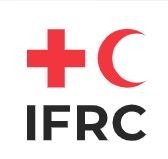
: International Federation of Red Cross and Red Crescent Societies (IFRC)
: Other / อื่นๆ
: 2238
: 19 November 2021
3 December 2021
Background
The International Federation of Red Cross and Red Crescent Societies (IFRC) is the world's largest humanitarian organization, with 192 member National Societies. As part of the International Red Cross and Red Crescent Movement, our work is guided by seven fundamental principles; humanity, impartiality, neutrality, independence, voluntary service, unity and universality.
Organizational Context
The International Federation of Red Cross and Red Crescent Societies (IFRC) is the world’s largest humanitarian organization, with a network of 192-member National Societies. The overall aim of the IFRC is “to inspire, encourage, facilitate, and promote at all times all forms of humanitarian activities by National Societies (NS) with a view to preventing and alleviating human suffering and thereby contributing to the maintenance and promotion of human dignity and peace in the world.” The IFRC works to meet the needs and improve the lives of vulnerable people before, during and after disasters, health emergencies and other crises. The IFRC is part of the International Red Cross and Red Crescent Movement (Movement), together with its member NS and the International Committee of the Red Cross (ICRC). The work of the IFRC is guided by the following fundamental principles: humanity, impartiality, neutrality, independence, voluntary service, unity, and universality. The IFRC is led by its Secretary General, and has its Headquarters in Geneva, Switzerland. The Headquarters are organized into three main Divisions: (i) National Society Development and Operations Coordination; (ii) Global Relations, Humanitarian Diplomacy and Digitalization; and (iii) Management Policy, Strategy and Corporate Services. The IFRC has five regional offices in Africa, Asia Pacific, Middle East and North Africa, Europe, and the Americas. The IFRC also has country cluster delegation and country delegations throughout the world. Together, the Geneva Headquarters and the field structure (regional, cluster and country) comprise the IFRC Secretariat. The Asia Pacific region is the most disaster-prone in the world including overlapping challenges of natural hazards amidst various disease outbreaks such as COVID-19. In 2020 alone, the IFRC supported 53 emergency operations in Asia Pacific, reaching more than 4.8 million people in 18 countries. This role sits within the IFRC Country Cluster Delegation (CCD) based in Bangkok, covering the four countries of Cambodia, Lao PDR, Thailand and Viet Nam. The CCD also provides secretariat support to the Southeast Asia Red Cross/Red Crescent Networks, and represents IFRC with the United Nations ESCAP and other regional organizations.
Job Purpose
The Health Officer will coordinate health technical support and advice to the Red Cross National Societies of Thailand, Cambodia, Laos and Viet Nam. The health technical area includes the sectors of Public health in emergencies with emphasis on epidemic and pandemic preparedness and response, Water, Sanitation and Hygiene Promotion; Community Based Health and First Aid (CBHFA), prevention of Non-Communicable Disease, Social and Elderly Care, HIV/AIDS as well as Blood services.
Given the current COVID 19 pandemic, the Health Officer will be the main technical advisor and program support to the national societies for their COVID19 operations, as well as lead coordination with external organisations such as the World Health Organisation and UNICEF. The Health Officer also provides secretariate support to exchange of information amongst the health focal points from South-East Asian Red Cross and Red Crescent societies.
The Health Officer sits within a broader programming team including thematic areas of disaster risk management, protection, gender and inclusion, Community engagement and accountability, national society development, planning, monitoring and evaluation and communications that all work closely together to provide coordinated and aligned technical support to the societies.
Job Duties and Responsibilities
Education
Experience
Knowledge, skills and languages